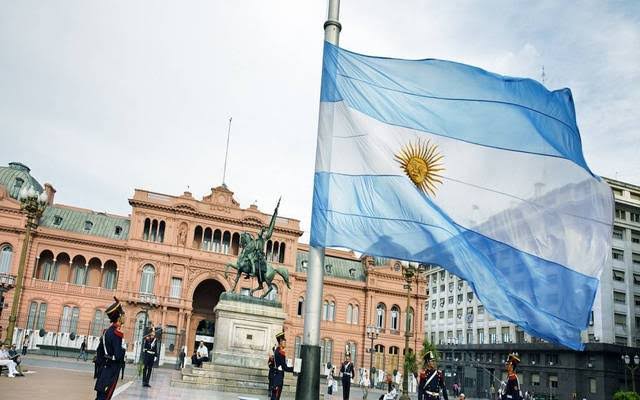The Argentine peso lost more of its value on the informal market as the government announced new measures to boost its dwindling foreign currency reserves, while negotiating with the International Monetary Fund on a plan to repay its loans. The US dollar hit 550 pesos on the black market compared to 528 last week, as the government announced steps to stimulate exports and limit imports. Many Argentines resort to converting their savings in local currency into dollars, as this is the only means of defense against rampant inflation, which jumped in 2020 to its highest level in three decades, recording 94.8 percent.
The country’s foreign currency reserve, estimated at 44 billion dollars in January, also fell to just over 25 billion dollars. In the first half of this year, Argentina’s trade deficit amounted to 4.4 billion dollars.
The new measures announced by the government included setting a new official exchange rate for the dollar of 340 pesos allocated for agricultural exports, higher than the official rate of 284 pesos, effective until August 31.
The measures also include the introduction of new taxes on imports. Sergio Massa, economy minister and candidate for the presidential elections in October, told representatives of the agricultural industry, the main source of foreign exchange in Argentina, that these measures were dictated by the “realism of the current moment,” AFP reported. The government is under pressure from its negotiations with the International Monetary Fund on the repayment of a loan worth 44 billion dollars, in addition to the consequences of the unprecedented drought that hit the country.
The Argentine government and the International Monetary Fund announced that they had reached a preliminary agreement on the terms of repayment of Argentina’s debt of 44 billion dollars. “The teams of the Argentine Ministry of economy, the central bank and the International Monetary Fund have finalized the main aspects of the technical work on the upcoming revision,” the two sides said on their Twitter accounts. The parties agreed on”the main objectives and criteria that will form the basis of an agreement at the level of bodies, the final version of which, expected in the coming days, will make it possible to move on to the revision of the Argentine program”. “The agreement aims to strengthen the financial system and strengthen reserves, taking into account the severe impact of the drought and the damage to the country’s exports and tax revenues,”the two sides explained.
An Argentine delegation went to Washington on July 16 to negotiate with the International Monetary Fund to soften the terms of an agreement reached in 2022 with the fund to refinance the country’s huge debts and obtain the expected payments. Argentina failed to meet the goals of raising foreign currency reserves and reducing the fiscal deficit, set for the first and second quarters of this year.


















